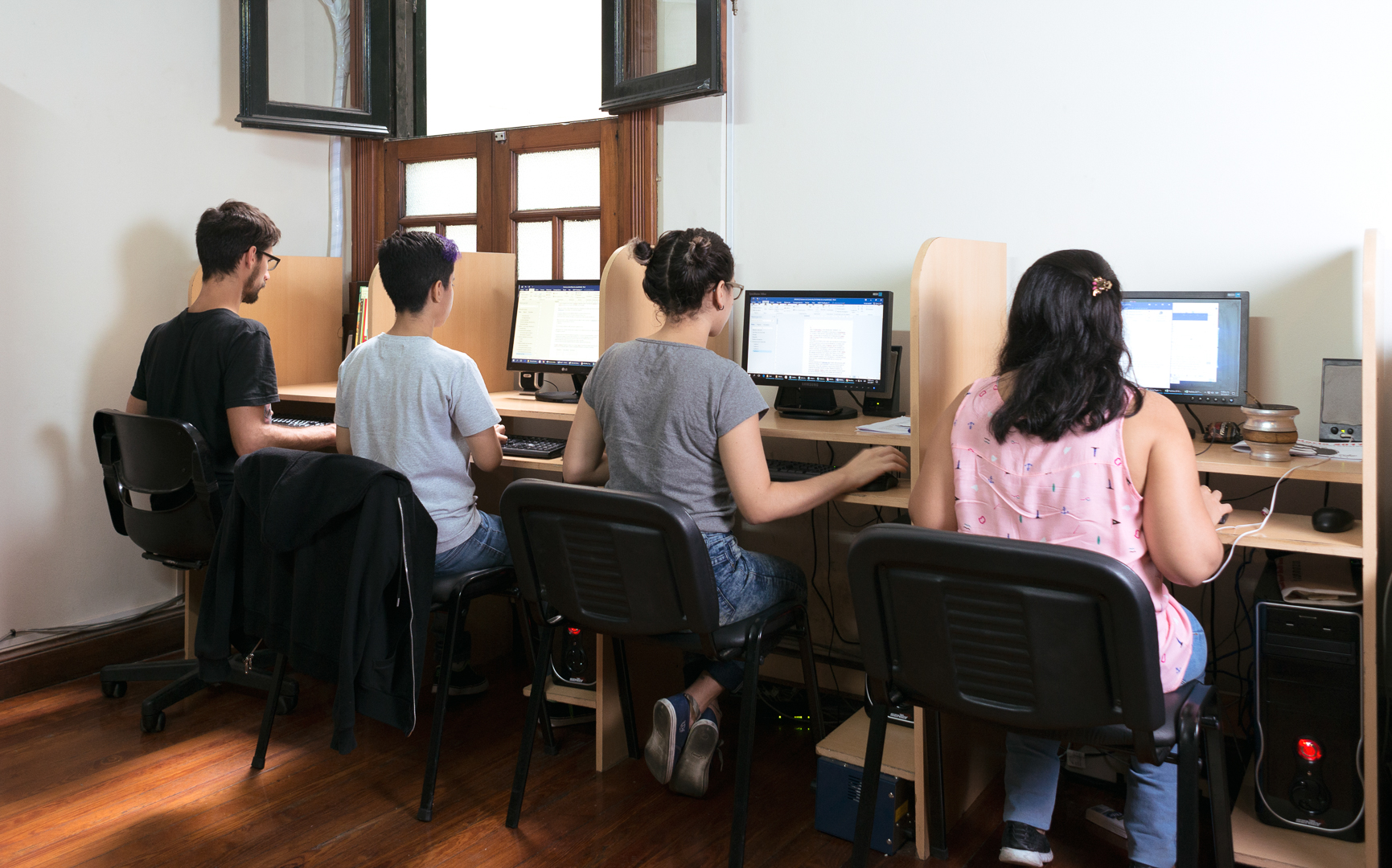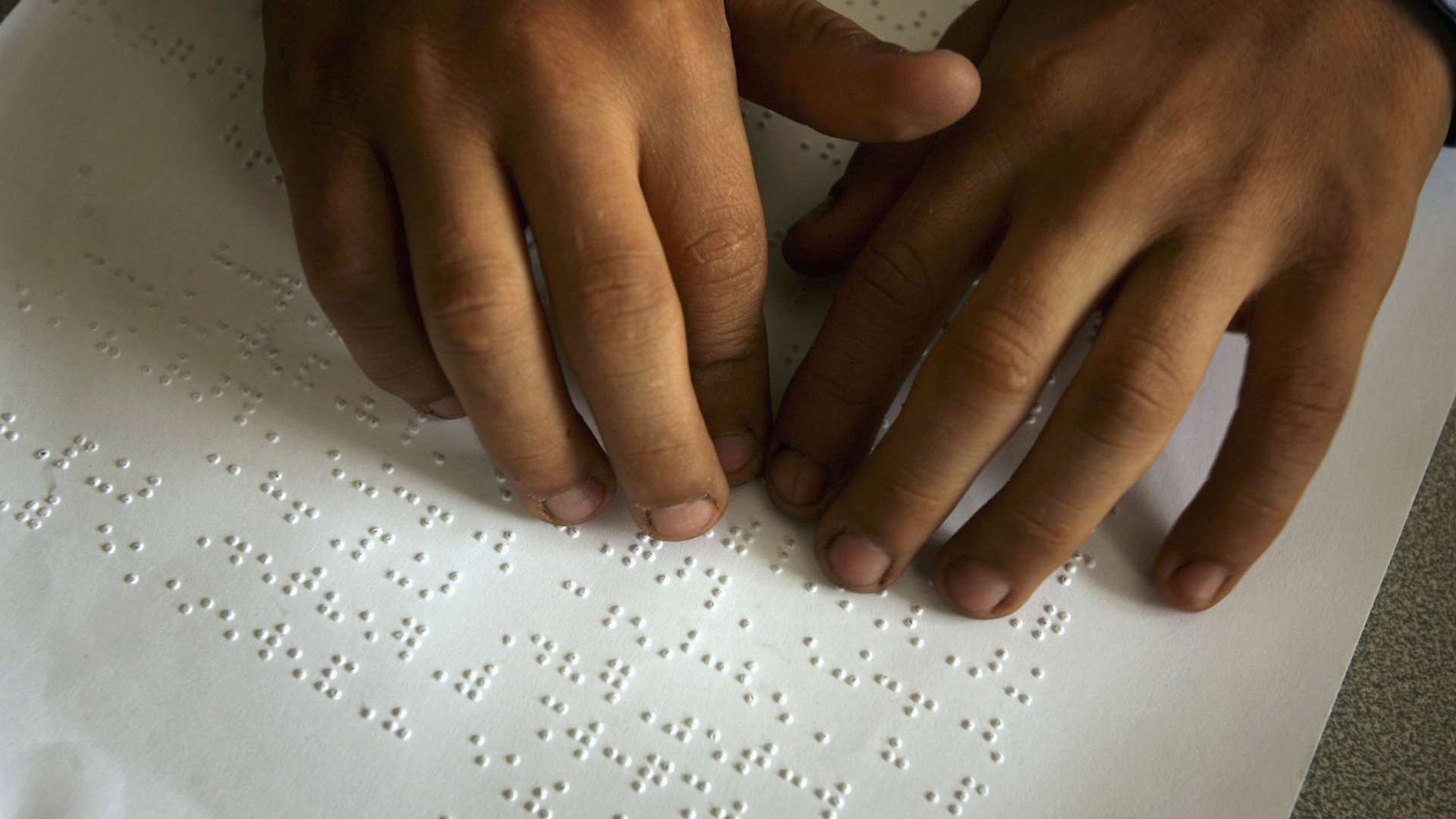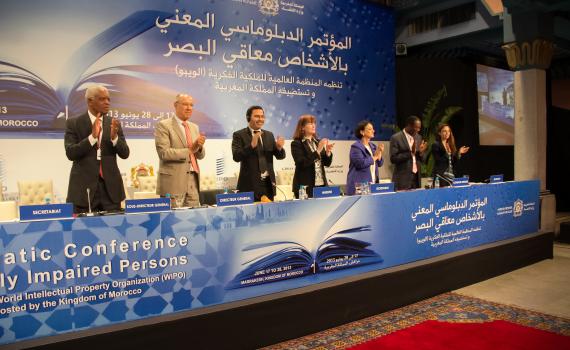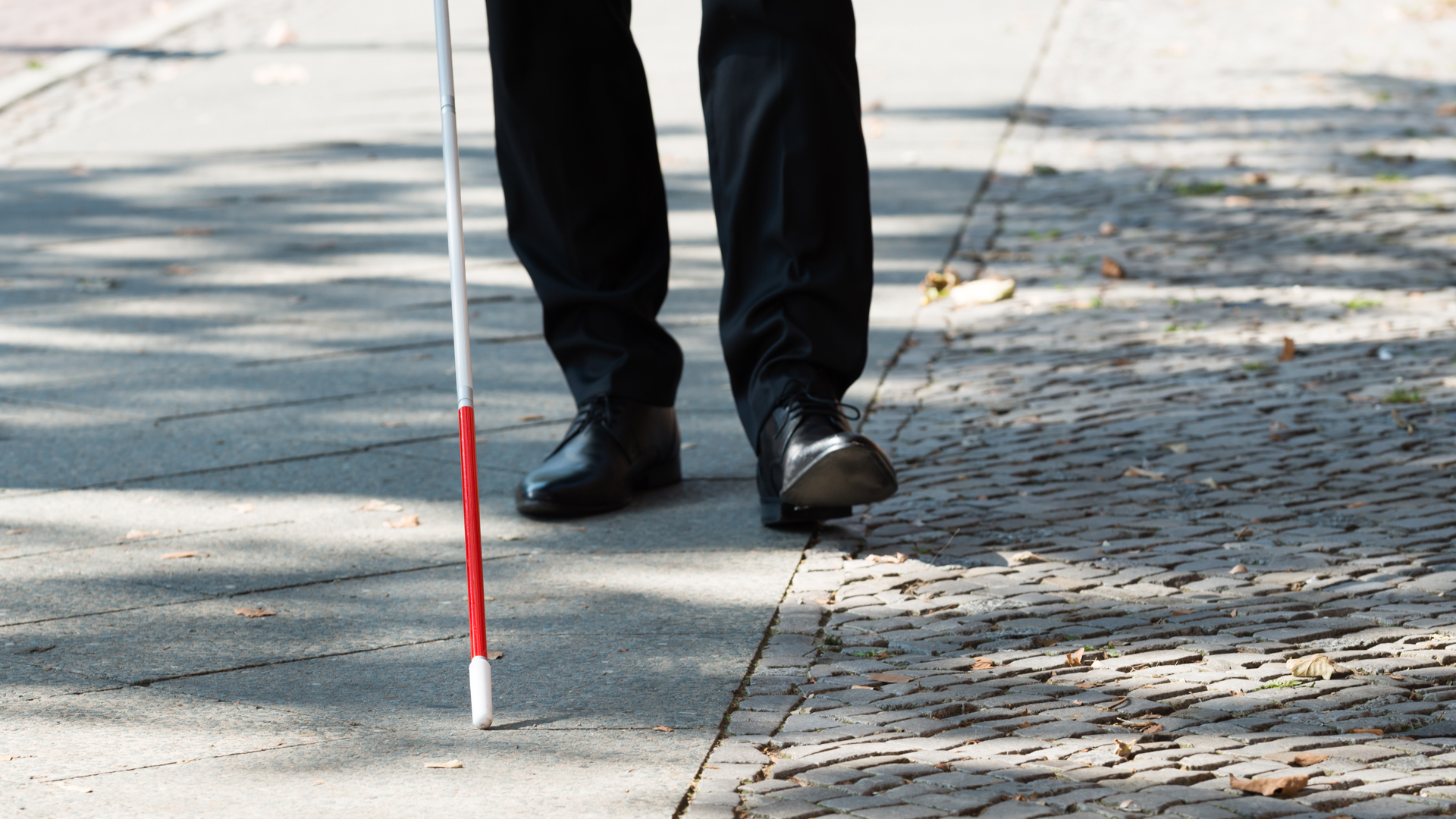Remember the colors of the shirts of the teams of the 1982 FIFA World Championship. From the 1986 World Cup, he has the slow motion image of Argentine footballer Diego Maradona's goal against England. But during the 1994 World Cup in the United States everything was different: I couldn't even see where the TV was. Pablo Lecuona progressively lost his sense of sight from the age of 2, but he never extinguished his enthusiasm for living, learning and sharing.
He became an activist for the rights of the blind in the world and was one of the promoters of the Marrakesh treaty that now allowed 34,000 books to be recorded with a human voice in Spanish and easily accessible to people with different levels of visual impairment.
“I never imagined being an activist for the rights of blind people. I was learning, sometimes with the beats,” Lecuona said in dialogue with Infobae. He was born in Buenos Aires in 1974 and studied Communication Sciences at the University of Buenos Aires. At the age of 17, he was already working as a recording technician for talking books at the Argentine Library for the Blind. In 1999, with friends, he founded the first digital library for the Spanish-speaking blind, which they called TifloLibros.

This initiative was based on an exchange between friends. They scanned printed books and shared them. As they were scanned, everyone could use the screen reader on the computer and read them. But one day they wondered why not share with other people and that's how Tiflolibros was born. Later, Tiflonexos was created, which is a non-profit association that provides everything from printing restaurant menus in Braille to publications and advice on accessibility and inclusion to companies, governments, embassies, international organizations, and other civil society organizations.
When Lecuona was two years old, an ophthalmologist told her parents the diagnosis of a retinal problem. He anticipated that he was not going to see. He suggested that since they were going to have a blind son, they could think about guiding him to become a musician. But the parents were not resigned to the fact that the son could continue to develop his life autonomously and according to his own interests. With the support of Yolanda Penerini, from the Argentine Association of Professionals with Visual Impairment, Lecuona was learning to adapt to change.
He went to an ordinary elementary school and as a teenager he was already moving on his own. He went backpacking with his friends to Patagonia. “My parents gave me the freedom to grow up. In my teenage years I went to Patagonia and carried my cane. It ended up being everyone's cane because my friends used it to walk on the rocks,” he recalled.
“In the 1990s, it was accepted that some books were recorded, but there were very few of them. And not all blind people could count on scanners to read books on the computer. When we started chatting with my friends, we realized that there was an intellectual property right to respect, but at the same time it affected our right to read, educate ourselves and have better employment opportunities because access to books had barriers,” he explained.

Lecuona and his friends started building Tiflolibros with almost no resources. They were only mobilized by interest in the needs of blind people. Afterwards, they had donations, made agreements to make projects with different institutions and were recognized with seven international awards for the change that was achieved. They have improved the lives of many people.
In 2016, Lecuona traveled to France to receive the UNESCO/Emir Jaber Al-Ahmad Al-Jaber Al-Sabah Prize for the Empowerment of Persons with Disabilities, and the following year he was recognized with an award from the Accessible Books Consortium (ABC) of the World Intellectual Property Organization. “It was quite a little road. Many years of fighting and fighting to get books to people,” he said.
Authors and publishers publish printed or digital books and are guaranteed intellectual property rights. But respect for copyright limited the human right of blind people to education and information. In 2007, Argentina was able to amend the Law on Intellectual Property: it exempted the reproduction and distribution of scientific or literary works in special systems for the blind and other people with perceptual disabilities from paying copyright.
Since 2009, Lecuona became part of the Latin American Union of the Blind. He messed with everything in the campaign for the right of the blind to read. There are an estimated 285 million people worldwide with visual impairments, of whom 90 per cent live in developing countries. In Latin America, there are approximately 6 to 10 million people. According to the World Blind Union, even in developed countries, only 5% of published books are available in accessible formats. This figure is alarmingly lower in developing countries. But change is underway.

Lecuona became regional coordinator for Latin America for the World Blind Union's campaign for ratification of the Marrakesh Treaty. “There was resistance to it, especially from some developed countries. It was finally achieved,” he said. With its support and that of activists from other regions, the Marrakesh Treaty was adopted on 27 June 2013, which is administered by the World Intellectual Property Organization.
This global treaty was made to facilitate the production and transfer of books specially adapted to the blind or visually impaired through a set of limitations and exceptions to traditional copyright law. It entered into force on September 30, 2016.
“We already had the treaty but its implementation has not been easy,” he said. For the past six years, Lecuona worked to make it happen. On March 15, on Accessibility Day, he launched with his association a new service that is part of the implementation of the Marrakesh Treaty: that is the 34,000 books with a human voice in Spanish that are now available. The books were professionally recorded by the National Organization of the Spanish Blind.

Visually impaired people or people with dyslexia can register to order the service of access to books with a human voice (you can access it by clicking here). Each month, registrants will receive a message with recommendations for 10 audiobooks. In addition, they can order other titles from the catalog of books already available. “In Argentina there were only 5,000 titles of books recorded with a human voice. After the Marrakesh treaty, there are now 34,000 and there will be more in the future,” he sponsored.
“This new service we are providing will greatly help people who are starting to lose their vision. Sometimes it is thought that the world ends with loss of vision. But it's not true. With virtual communities, we can learn how others have solved different problems with disabilities and what tools are available to use,” he said.
How do you maintain enthusiasm and spread so much joy? , asked Infobae. “We must not shut down or refuse to learn new things. We should not put disability above all else. Disability is another feature of life. It's not your whole life. And we have the right to use different tools that allow us to adapt, weave networks, and move on.”
KEEP READING:
Últimas Noticias
Debanhi Escobar: they secured the motel where she was found lifeless in a cistern
Members of the Specialized Prosecutor's Office in Nuevo León secured the Nueva Castilla Motel as part of the investigations into the case

The oldest person in the world died at the age of 119
Kane Tanaka lived in Japan. She was born six months earlier than George Orwell, the same year that the Wright brothers first flew, and Marie Curie became the first woman to win a Nobel Prize

Macabre find in CDMX: they left a body bagged and tied in a taxi
The body was left in the back seats of the car. It was covered with black bags and tied with industrial tape
The eagles of America will face Manchester City in a duel of legends. Here are the details
The top Mexican football champion will play a match with Pep Guardiola's squad in the Lone Star Cup

Why is it good to bring dogs out to know the world when they are puppies
A so-called protection against the spread of diseases threatens the integral development of dogs




